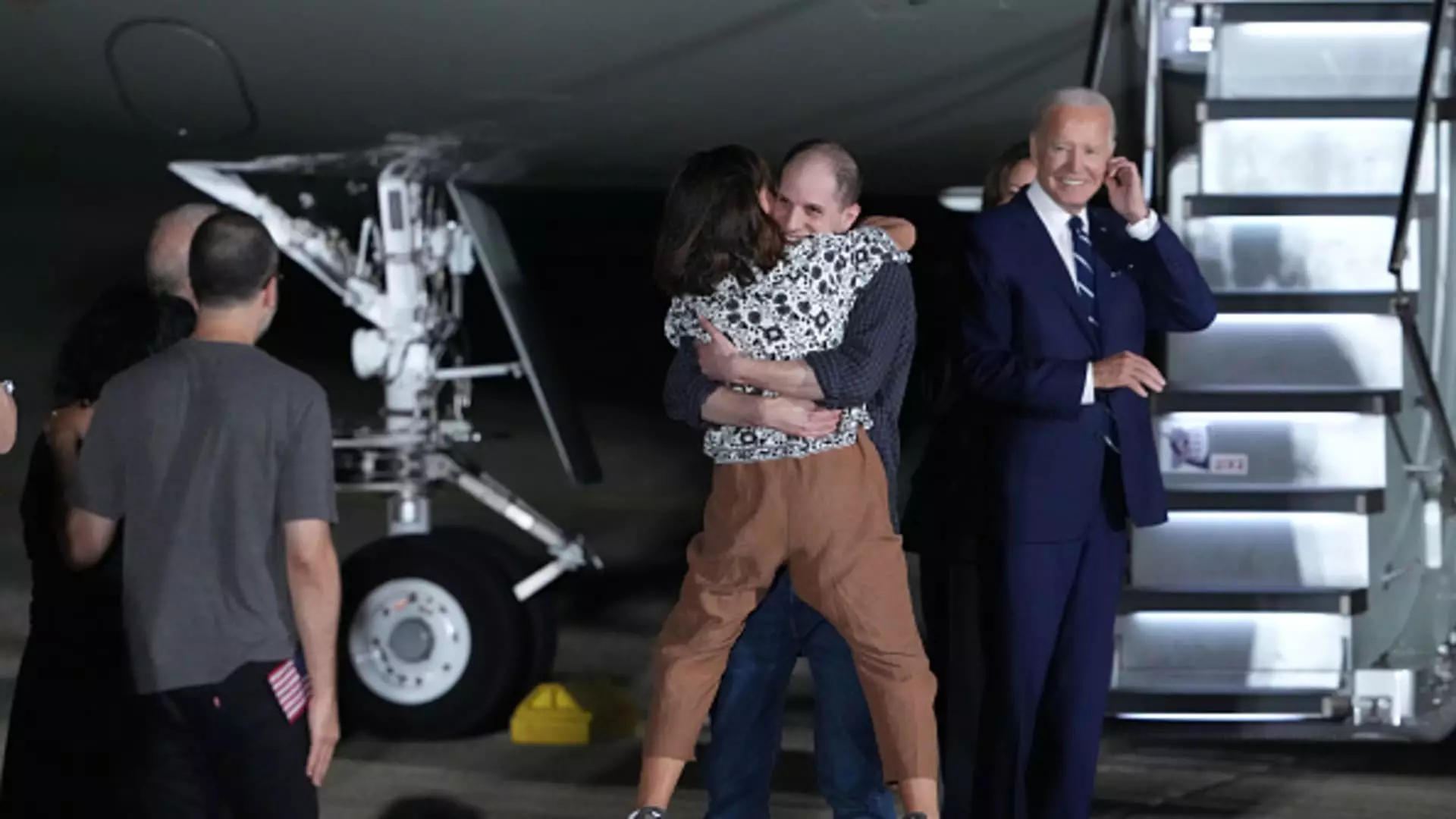The recent prisoner swap involving Wall Street Journal reporter Evan Gershkovich and former U.S. Marine Paul Whelan resulted in an exchange of two dozen prisoners between various countries. Among those released were also five German citizens and seven Russian citizens. These individuals were flown to Turkey as part of the negotiated exchange, and they had been imprisoned in Russia on charges that their home countries strongly contested.
One of the key figures in the swap was Russian-American journalist Alsu Kurmasheva and British-Russian activist Vladimir Kara-Murza. They were also released alongside Gershkovich and Whelan. President Joe Biden emphasized that all four individuals had been unjustly imprisoned in Russia, and their release was seen as a significant diplomatic achievement.
The release of these prisoners was seen as a significant diplomatic feat by the Biden administration. In a statement from the White House, Biden highlighted that a total of 16 people, including five Germans and seven Russian citizens, were successfully negotiated for release. Many of these individuals had been wrongfully detained for years, and their freedom was celebrated as an end to their suffering and uncertainty.
White House national security advisor Jake Sullivan described the prisoner exchange as historic. He noted that it was unprecedented since the Cold War, involving a large number of individuals and multiple countries. The exchange was the culmination of months of complex negotiations, reflecting the close collaboration between the U.S. and its allies in securing the release of these individuals.
After the exchange, a small plane carrying Gershkovich, Whelan, and Kurmasheva landed at Joint Base Andrews in Maryland. President Biden and Vice President Kamala Harris personally greeted the freed Americans alongside their family members. Gershkovich, who had been arrested in Russia on espionage charges, was sentenced to 16 years in prison following a trial that was denounced by the U.S. government as a sham.
The prisoner swap also involved challenges and controversies. Vadim Krasikov, a Russian spy and convicted hitman, was a crucial part of the exchange. Krasikov had been held in Germany for the murder of a former Chechen militant in Berlin in 2019. His release was essential to securing Russia’s agreement to the swap, highlighting the complexities and moral dilemmas involved in such negotiations.
The recent prisoner swap involving Wall Street Journal reporter Evan Gershkovich and former U.S. Marine Paul Whelan shed light on the intricate nature of international diplomacy. The release of these individuals, alongside others, marked a significant achievement in securing the freedom of those wrongfully imprisoned. However, the exchange also raised questions about the ethical considerations and compromises made in the pursuit of such diplomatic agreements.

Leave a Reply